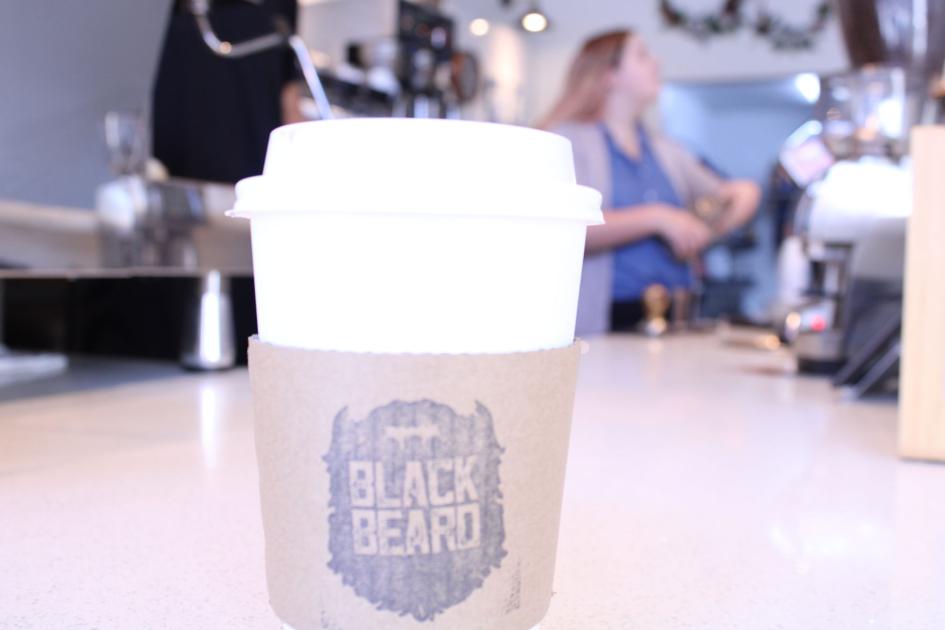March marks Caffeine Awareness Month and college students may have experienced exhaustion after pulling a late night study session, waking up early for class or if they have an upcoming exam. The result of these actions is the consumption of caffeine whether it’s from Starbucks, Blackbeards the local coffee shop, or energy drinks.
Baristas at Blackbeard’s, Chase Hall and Kate Swyers, said about 50 to 60% of their customers are college students. Hall said Blackbeards, a local coffee shop in Uptown Greenville, witnesses a lot of college students come by and consume their products due to their close location to East Carolina University campus.
“It’s (Blackbeard’s) a nice, chill place to study that isn’t right on campus so it’s not like the library,” Hall said.
Swyers said the majority of students come into the shop to grab a quick cup of coffee in the morning before heading to campus while in the afternoon students might stay to study. She said students come in because of the location and atmosphere of the shop. A majority of the people who come in are regulars and with Blackbeard’s being a more intimate setting, we get to know the people, according to Hall.
The most popular item on the menu is the caramel macchiato and depending on whether it’s a small or large it ranges from two to three shots of espresso said Hall. This caffeine boost provides students with an advantage to stay focused and not fall asleep during class he said.
“Coffee fell into self care if school wasn’t going well it allowed me to take a moment to breathe or relax before I continued about my day,” Swyers said.
Freshmen psychology major Johanna Athey has been an adamant coffee drinker since the age of 14. She said she started out drinking a cup a day but it soon turned to three cups. Caffeine was able to lift her mood and get her through the day and without it she said she became super tired and irritable.
However, when Athey came to ECU she started setting a budget for coffee since as a college student money is tight. This budget brought her down to two cups a day. She said she would prepare her own coffee if it weren’t for her schedule of back to back classes. Starbucks for her became a quick and easy option rather than going back to her dorm when she was already in rush she said.
“Even if I was told coffee wasn’t good for me I would still drink it because I rely entirely too much on it to get me through the day,” Athey said.
Student Health Services (SHS) graduate intern, Abigail Hubbard, said caffeine in coffee varies by type so there is never a set amount with all of the different drink combinations said. She said the average caffeine intake should estimate around 400mg a day but when consuming caffeine it depends on the person and their regular consumption.
However, Hubbard said caffeine has its advantages and disadvantages especially when there is regular or excessive consumption. She said caffeine can improve mental alertness and lessen fatigue, however, it only helps people if they’re bored or fatigued already. Moderate consumers of caffeinated coffee are at a lower risk for cardiovascular disease compared to the non coffee drinkers as well, according to Hubbard.
If a lot of caffeine is present in their system there will be a result in disadvantages like increased nervousness, heart palpitations, insomnia or withdrawal symptoms if there is a dependency Hubbard said.
“It is very dependent on the person because coffee has so much variety to it because you have decaf, Starbucks, McDonalds and Dunkin Donuts so it is important that everyone evaluates it(caffeine intake) on an individual level,” Hubbard said.
For more information SHS offers pamphlets on caffeine and if you are having any of the side effects listed contact SHS at (252) 328-6841 for more questions.
